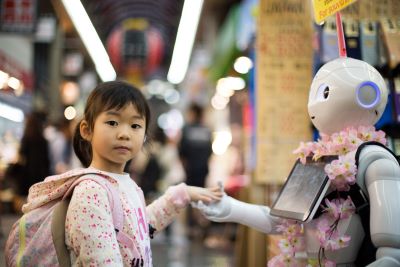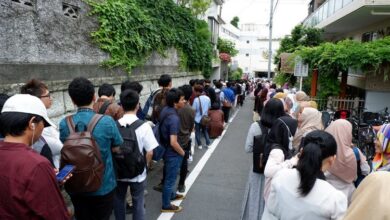
By: Ali Syarief
In an increasingly digitized world, a fundamental question arises: who holds moral and spiritual authority today? A recent observation from OpenAI CEO Sam Altman, shared at the AI Ascent forum hosted by Sequoia Capital, highlights a global phenomenon—Gen Z and millennials are increasingly turning to ChatGPT not just as a search tool, but as a life advisor.
But this is not merely a technological issue. It is a social and cultural shift spreading across the globe, with serious implications for tradition, religion, and local authority.
From Kyoto to Cairo, from Minnesota to Madura
In Japan—a country known for its quiet introspection and cultural emphasis on harmony—young people increasingly avoid direct emotional conversations. Instead, they ask ChatGPT about personal dilemmas rather than confide in parents or Zen monks. The machine is seen as neutral, nonjudgmental, and free from the social burden of relationships.
Meanwhile, in the Western world—particularly the United States—the role of pastors or church counselors is gradually being replaced by a chatbot that is always available. In a culture of individualism and instant access, ChatGPT becomes an efficient confidant that demands no emotional reciprocity.
However, perhaps the most intriguing effects are observed in the Muslim world and Southeast Asia. In Indonesia, for instance, urban youth are beginning to consult ChatGPT on matters once considered the exclusive domain of religion: is dating allowed? how do I calm my heart after a parent’s death? what’s the best life path after failing in school?
Questions once posed to clerics, elders, or parents are now directed to algorithms. A text-based machine is replacing intergenerational relationships that once served as the backbone of cultural value transmission.
When Tradition Is Outpaced by Algorithms
For many Eastern societies—where family ties are strong and social structures are hierarchical—this phenomenon creates tension. On one hand, young people feel liberated from dogma. On the other, traditional communities feel they are losing control over the narratives of the next generation.
Religious leaders and cultural figures from India to West Africa face a new challenge: how can they compete with the speed and appeal of AI in providing answers?
Even more troubling, AI like ChatGPT is not bound by religious doctrine, local ethics, or traditional wisdom. The advice it gives is often universal, neutral, and at times morally indifferent—contrary to the spiritual frameworks rooted in divine law, ancestral teaching, and communal values.
Regression or Evolution?
The question isn’t just is AI replacing spiritual leaders? but more deeply: what do we now consider the source of truth in a globalized society?
For some cultures, this signals spiritual decline—a robot has no conscience, cannot weep, cannot pray. But for others, it may represent an evolution in knowledge—humans creating entities capable of helping to navigate life’s mysteries rationally and efficiently.
In a cross-cultural lens, one thing becomes clear: AI is not just technology. It is a new cultural actor that is shaping humanity’s future.
If religious figures and cultural guardians fail to adapt, they may be remembered as the wise ones left behind—unable to speak in the language of their time.
And when a young person seeks guidance not from a father or spiritual mentor, but from a machine, our world is not just changing technologically—it is transforming spiritually.



